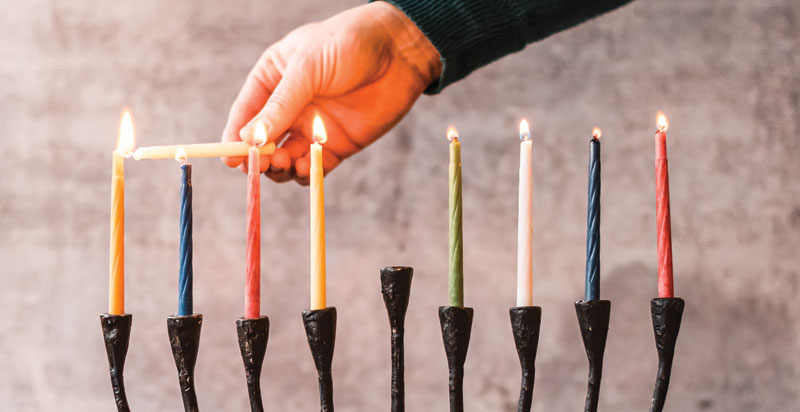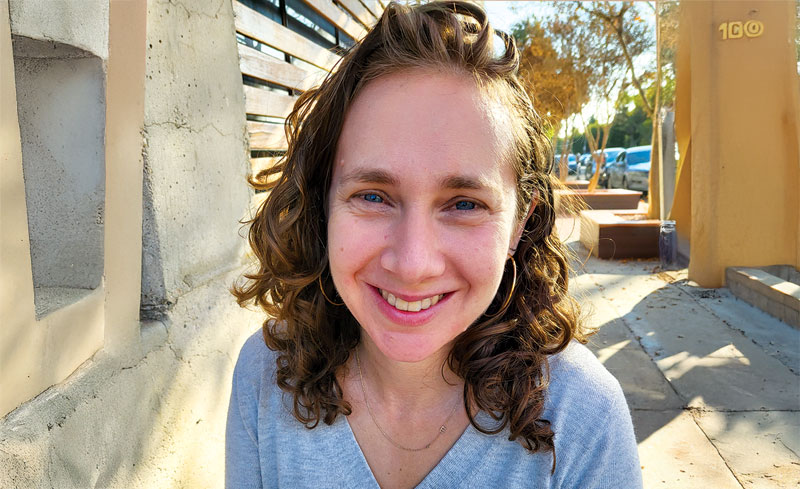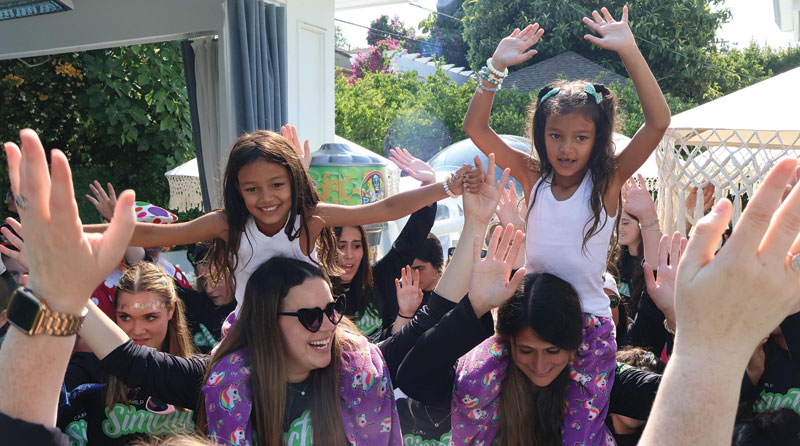There we were, my family, 11 anarchists cruising down to Ensenada for four days on the Viking Serenade, celebrating my mother’s 85th birthday. I roomed with the birthday girl in one of those cabins where you have to yell, “Watch out!” when you exit the lavatory.
When we returned, I drove my mother to Senior Summer School at UC Santa Barbara. Riding down in the elevator, after bringing her suitcases up to her dormitory room, I said, kiddingly: “In your room before 11 p.m., write home but don’t come home, and don’t tell me about your sex life.” My mother laughed like a teen-ager along with the other women who were on their way to the cafeteria.
I looked at these zesty women and thought that cuddling — the socially acceptable sex life for a senior — was on their short list of sexy things to do. They were free, finally, of all that bound them to the conventions of their youth, and they were freed by their age, not by reading Erica Jong.
So when my editor suggested that I write about sex from the older perspective rather than a column about the family cruise, I cringed. When I wrote about seniors for the Los Angeles Times, every so often I was tempted to write a piece about sex and seniors. “What’s to write?” I asked myself. “What could possibly be the difference between the senior class and the freshman?” There certainly were a lot of similarities: drug problems, body self-consciousness, feelings of inadequacy, hair problems. “Must I be trapped in the problem prism? Wasn’t anyone having fun in bed?”
Then I interviewed Harold Mitchell, married more than 50 years to the same woman. I met him at a conference at USC’s Andrus Gerontology Center. Harold had a passion for life. He would be considered seductive for any age. I told him so. He told me that he was still courting his wife. He said that though the intimacies may be fewer, they are no longer rushed for the sake of reaching orgasm. And that’s how the conversation went, and I wrote it, and the Times published it.
Harold is among the 40 percent of people 65 and older who are sexually active. He said that he felt relieved after all these years to be less oriented toward sexual performance and more attuned to sensuality. In fact, he said that he felt ever-youthful because of how much longer it took to attain satisfaction. “Isn’t that what we always wanted when we were younger?” he asked.
Was it? I’m glad somebody was conscious. I was too busy being promiscuous. I can’t even conceive of how I would have turned out if my mother were a hippie or if boys read “Iron John” instead of “The Amboy Dukes” while I read “Forever Amber” and “Tropic of Cancer.” I had to travel to Europe for my sexual rebellion.
Now, kids rent a video, stay home and try to avoid catching their tongue studs on a pillowcase. Love yourself. Do what feels good. Rebellion is a lot scarier when there are no rules to rebel against. So much for the children of parents who brought us the “sexual revolution.”
Those in my mother’s generation became adults when they were still children. Two wars, an economic depression, influenza and working at age 9 forced people to grow up quickly. Sex was reserved for husbands and wives. However, my Aunt Ruthie rebelled. She was a flapper and smoked cigarettes, studied ballet, and broke the chastity rules.
Every generation of American women redefines itself by the times it lives in and measures itself by the progress of the women who came before. Naomi Wolf, 35, author of “Promiscuities: The Secret Struggle for Womanhood,” for instance, came of age during the Reagan-Bush years. She is first generation feminist movement. That is why I don’t get it when she writes, “Men were deciding for us if we were women.” Men didn’t decide if we were women; quite the contrary, we decide if they are men — but only if we understand we have that power. Otherwise, we do a lot of pretending and whining.
Postscript: Last year, Richard Gunther called me after getting my name from the UCLA Center On Aging. He wanted to explore the lives of older men. Let’s make it interesting, I suggested. Let’s try to find out if men, such as Harold Mitchell, make a transition from sexuality to sensuality. Is it natural, or does it have to be learned? What is the effect of lowered testosterone on the male spirit? How do we define and fulfill desire past 65? Instead of “navigating sexual turmoil” (Jewish Journal headline, June 27), let’s explore the open seas in a lighthearted, joyful way. Is there anybody out there who’s not in turmoil? All responses will be protected for their confidentiality.
Write to: Linda Feldman
c/o The Jewish Journal
3660 Wilshire Blvd., Suite 204
Los Angeles, CA 90010
Linda Feldman, a former columnist for the Los Angeles
Times, is the co-author of “Where To Go From Here: Discovering Your Own Life’s Wisdom,” due out his fall from Simon & Schuster.
All rights reserved by author






















 More news and opinions than at a Shabbat dinner, right in your inbox.
More news and opinions than at a Shabbat dinner, right in your inbox.